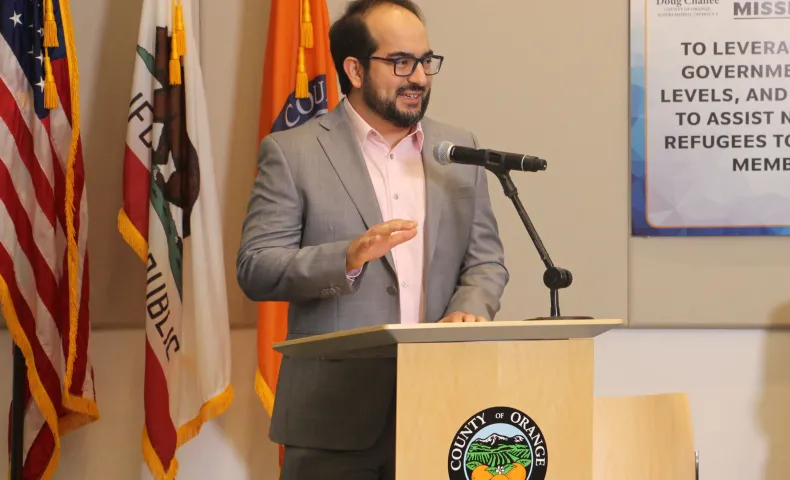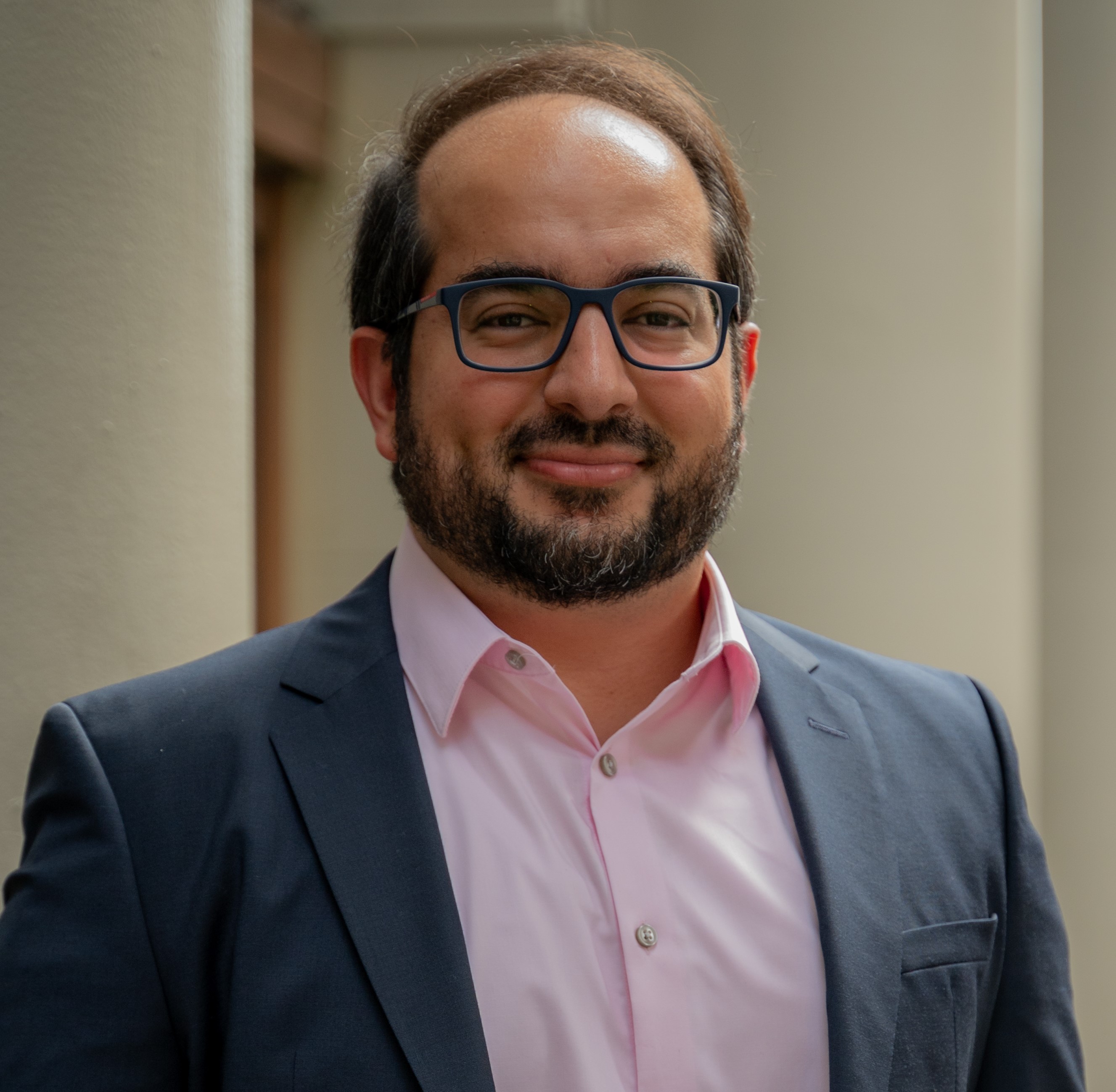 Photo Courtesy of California Immigrant Policy Center
Photo Courtesy of California Immigrant Policy Center
“Build Our Power”
 Masih Fouladi became executive director of longtime Haas, Jr. Fund grantee partner the California Immigrant Policy Center (CIPC) in the fall of 2023. An immigrant from Iran, he brings a heartfelt commitment to equity, justice, and collaboration to the role of leading one of California’s most accomplished and storied immigrant rights nonprofits. Masih recently spoke with Haas Jr. Immigrant Rights Program Director Elica Vafaie about his personal journey in the movement, his vision for CIPC, and what funders can do to ensure that immigrant rights groups have the resources they need to win.
Masih Fouladi became executive director of longtime Haas, Jr. Fund grantee partner the California Immigrant Policy Center (CIPC) in the fall of 2023. An immigrant from Iran, he brings a heartfelt commitment to equity, justice, and collaboration to the role of leading one of California’s most accomplished and storied immigrant rights nonprofits. Masih recently spoke with Haas Jr. Immigrant Rights Program Director Elica Vafaie about his personal journey in the movement, his vision for CIPC, and what funders can do to ensure that immigrant rights groups have the resources they need to win.
Elica: What’s your journey to working in the immigrant rights movement?
Masih: My family’s immigrant story in the U.S. is like that of so many other families, with my parents working around the clock to provide me and my siblings with an opportunity to obtain a good education and a stable life. And then 9-11 happened and it changed everything.
As Muslims we faced a lot of discrimination and abuse after that. My family and I were the target of a hate crime. That experience motivated me to learn about our rights—as the eldest child I felt the need to do what I could to protect my family. I attended a Know Your Rights presentation at a local mosque, where the theme was that regardless of your immigration status, your income, or education, you have certain rights in the United States. That ultimately motivated me to attend law school so that I could work in the civil rights movement. I started out as an intern, then a staff attorney, and eventually rose to a senior position with the Los Angeles office of the Council on American-Islamic Relations (CAIR). Our work at CAIR to support asylees seeking support and eventually on the Muslim Ban led to close collaboration with CIPC on a number of campaigns which allowed me to become more active in the immigrant rights movement.
Elica: What was it about CIPC that motivated you to become executive director?
Masih: I became familiar with CIPC’s role in a number of big wins, including Health4All [which provides Medi-Cal to all income eligible Californians regardless of immigration status]. I always appreciated the collaborative focus of CIPC’s work, and I was impressed by how [former CIPC Executive Director] Cynthia Buiza led CIPC through Covid-19 and the challenges of the Trump years—and the organization just kept growing in its influence and scope. CIPC really felt like a second home for me.
Elica: What is your vision for CIPC and the immigrant rights movement overall?
Masih: Health4All shows what it takes to win. Not only do you need allies and a winning campaign, but you also need to be good at implementation. Infrastructure is key, because it allows you to make policy wins really stick and take root and show the way to success for other states and the country, too. The reality of working in immigrant rights is that funding across groups is not at the level it needs to be, and that results in a scarcity mindset. I want CIPC to be a leader in bringing groups together and figuring out how to create the infrastructure and systems to bring transformative change that is racially equitable and includes a strong immigrant lens in all aspects of our public systems so that our communities receive the recognition and support they deserve.
Elica: What’s your message to funders in this moment?
Masih: My best advice to funders is to be in conversation with the groups they support so you know their individual strengths and how they can best contribute to the movement’s success. Supporting groups and leaders to connect and collaborate is critical.
Philanthropy has gotten a lot better at providing unrestricted and flexible funding and investing in collaboration and leadership, but the dollars still aren’t capturing the true costs of sustaining our organizations and building a powerful movement. We have come a long way, but there’s still a lot we need to do.
